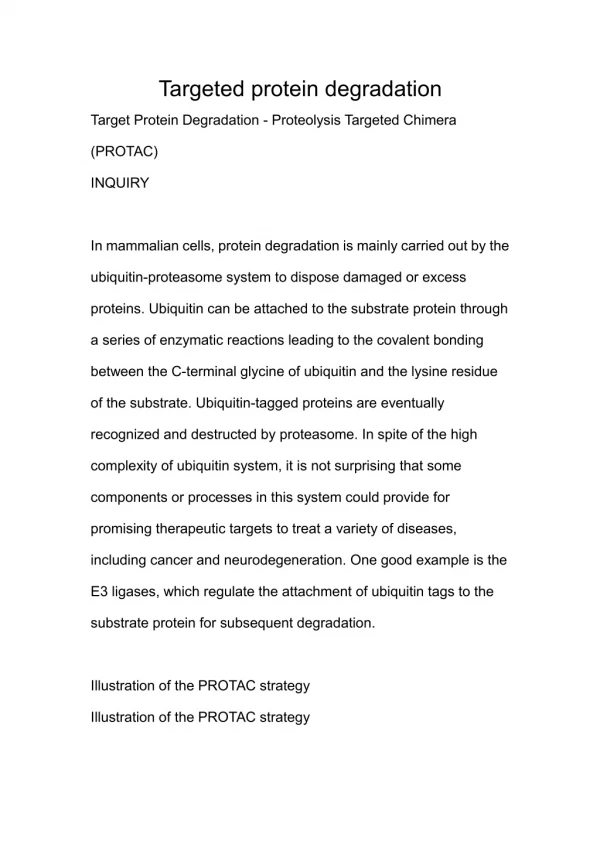targeted protein degradation
In mammalian cells, protein degradation is mainly carried out by the ubiquitin-proteasome system to dispose damaged or excess proteins. Ubiquitin can be attached to the substrate protein through a series of enzymatic reactions leading to the covalent bonding between the C-terminal glycine of ubiquitin and the lysine residue of the substrate. Ubiquitin-tagged proteins are eventually recognized and destructed by proteasome. In spite of the high complexity of ubiquitin system, it is not surprising that some components or processes in this system could provide for promising therapeutic targets to treat a variety of diseases, including cancer and neurodegeneration. One good example is the E3 ligases, which regulate the attachment of ubiquitin tags to the substrate protein for subsequent degradation.
★
★
★
★
★
80 views • 4 slides
